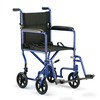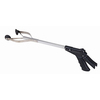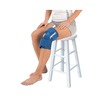Six Signs Your Elderly Loved One Needs Extra Support
Posted on
Aging is a reality that we all have to face eventually, and one of the things that must be considered is what help our elderly relatives will need. As they get older, there is a strong chance that they will require some assistance with some parts of their lives.
The help needed is very individual from person to person, but often it starts as a gradual change. Therefore, it’s important to look out for signs that might mean more support is needed, as being aware can help prevent potential accidents or downward health spirals.
Sometimes it can be difficult to actively seek help, so here are six signs that could suggest someone is needing extra support in their life.
1. Confusion or Changes in Personality
Forgetfulness is something very common with aging. Sometimes, however if the forgetfulness begins to impact someone’s health and safety, then it might be time to act on it.
Some signs to look out for can include: getting lost even when one is in a familiar setting, forgetting to take medication, consistently forgetting names and situations, leaving bills unpaid, or having other frequent memory lapses.
Forgetfulness could be an indicator of an underlying problem such as Alzheimer's, which, if left unmonitored, could result in them putting themselves in danger. In addition, be aware of ‘sun-downing’: a change in personality in the evening that can be an indication of dementia.
2. A Decline in Mobility
Sometimes, this means someone might struggle to get up from a chair, or walk up and down stairs, as well as finding it hard to do certain chores. It might be a case of them needing a walker, stair lift, or simply handle rails to help them move about the home, in which case we have a variety of aids to daily living which can assist. But if they are struggling to clean or dress themselves then more assistance will be required.
3. Personal Hygiene Issues
Personal hygiene can become a lower priority for those with mobility issues, or it’s just simply forgotten about if there are memory problems. If you notice that your loved one is neglecting certain aspects of their personal health, such as not brushing their teeth, wearing dirty clothing, or not bathing, this might be a sign that they are struggling. Bring up the issue gently to see what would help them get back into a routine.
4. A Cluttered Home
If you begin to notice a change in the tidiness and cleanliness of your relative’s home, this could be a sign that they are overwhelmed or might be experiencing issues with their memory.
It might also mean that they are physically unable to manage the housework and therefore no longer make it a priority. If they can't bend down anymore without pain or risk of falling, then things that fall are left and pile up.
Keep an eye out for unopened mail, a build-up of laundry, an overgrown garden, or an increase in general household clutter. You may notice grime and clutter because regular house tasks and tidying up get harder as people lose mobility and vision.
5. Loss in Weight or Appetite
A sudden change in weight could be a sign of malnutrition, dehydration or memory loss where they simply forget to eat. Poor fitting dentures can also cause people to stop eating solid foods. They might also be having trouble cooking, or shopping, or their fridge is full of food that has expired.
Note that sudden weight changes can be a sign of other underlying health problems, so it’s important to keep an eye on their weight over time and talk to their doctors if there are any concerns.
6. Not Meeting with Friends or Family Anymore
Even if they weren’t the most socially active, they still likely made time to see their friends and family. This may have changed during the pandemic with social distancing, but in general if they are no longer making an effort to see or do the social things they once enjoyed, it could be a sign that something is wrong at home. If you notice that they have stopped communicating with you as often as they used to, they might be starting to withdraw from others as well.
What Should You Do?
While it can be a difficult subject to talk about, doing nothing is not going to make the situation better. Conversations need to be had in order to ensure that they are getting the support that is needed. And while it can be hard to see our loved ones become less mobile and less sharp, this doesn’t mean that they can't still live a fulfilling life in their own home. They just might need a little extra help, and there are numerous aids to daily living that can be adopted. Here at Island Mediquip we can help supply a variety of aids, call us or find us in store for more information.


















